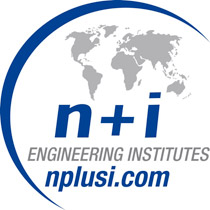
Master n+ INSA Toulouse Modeling, Mathematics (Applied)
- Bachelor
- Master
- PostMaster
Official title: Master degree in Mathematical and modeling engineering-INSA toulouse

INSA Toulouse
Training duration
2 years
Average academic cost found without insurance
6 871€
Accréditation:
Accreditation Provider: CTI
Prerequisite of the training
Bachelor (or equivalent)
Formation type
- Initial education
Domains
- Statistics, Mathematics (Applied), Modeling, Mathematics (Applied), Modeling, Mathematics (Applied)
M1 section is taught by
- INSA
M2 section is taught by
- INSA TOULOUSE
Training description
An engineer in mathematical engineering is able to model real situations and assist users for mathematical models and methods. Trainings includes solid culture in applied mathematics: differential equations, numerical analysis, statistics and probabilities, mastery of computer tools, good basic training in engineering sciences, sound knowledge of business and management technics. The course combines a grounding in engineering sciences, in the field of life sciences and environmental flows. A large part of the course focuses on the acquisition of cross-disciplinary competences (languages, economics, project management, communication). The mathematical engineer will work in sectors ranging from aeronautic, car and energy industries, life sciences, insurance and risk managment. He/she will be equally competent in production or R&D.
An engineer in mathematical engineering is able to model real situations and assist users for mathematical models and methods. Trainings includes solid culture in applied mathematics: differential equations, numerical analysis, statistics and probabilities, mastery of computer tools, good basic training in engineering sciences, sound knowledge of business and management technics. The course combines a grounding in engineering sciences, in the field of life sciences and environmental flows. A large part of the course focuses on the acquisition of cross-disciplinary competences (languages, economics, project management, communication). The mathematical engineer will work in sectors ranging from aeronautic, car and energy industries, life sciences, insurance and risk managment. He/she will be equally competent in production or R&D.
Scolarships (Subject to the school offer)
Year 1:
EIFFEL, CUMEX, EGIDEYear 2:
EIFFEL, CUMEX, EGIDESelect an option
Major in Numerical and Mathematical Models
Language level prerequisites
The minimum language level required, namely : A2 in French and B2 in English will be verified no later than end of April, 2026 DELF B2 before PIL (to be confirmed in your academic offer)
Course language
Only French
Language requirement to graduate
French B2
English B2
DIPLOME : TOEIC 785 / DELF B2
M1 Part
Location
INSA
135, avenue de Rangueil
31077 Toulouse cedex 4
Average academic cost found without insurance
2301€
Core
| Credits | Hours | Language | |
|---|---|---|---|
| Functional analysis | 4.00 | 55.00 | French |
| Probability and inferential statistics ; quality | 6.00 | 90.00 | French |
| Numerical Analysis and Optimisation | 4.00 | 55.00 | French |
| Signal and computer science | 4.00 | 55.00 | French |
| Management | 4.00 | 45.00 | French |
| Human sciences; sports | 4.00 | 60.00 | French |
| Choose 1 option(s) in 2 | |||
| Statistical exploration and software's | 4.00 | 50.00 | French |
| Partial Differential Equations and Finite Difference Schemes | 4.00 | 50.00 | French |
Core
| Credits | Hours | Language | |
|---|---|---|---|
| Research Project - Innovation; gestion; sports | 8.00 | 110.00 | French |
| Communication, organization | 6.00 | 75.00 | French |
Numerical and Mathematical Models
| Credits | Hours | Language | |
|---|---|---|---|
| Numerical schemes : Finite Element & Finite Volume Methods | 4.00 | 60.00 | French |
| Curves and Surfaces; CAGD | 3.00 | 40.00 | French |
| Object langages for scientific computing ; Sparse Linear Systems | 3.00 | 40.00 | French |
| Fluids Mechanics & Structures | 6.00 | 75.00 | French |
M2 Part
Location
INSA TOULOUSE
135, avenue de Rangueil
31077 Toulouse cedex 4
Average academic cost found without insurance
4570€
Core
| Credits | Hours | Language | |
|---|---|---|---|
| Research Project - Innovation - Engineering English | 8.00 | 150.00 | French |
| Human sciences, gestion,organization, communication; sports | 7.00 | 110.00 | French |
Numerical and Mathematical Models
| Credits | Hours | Language | |
|---|---|---|---|
| Numerical Fluid mechanics | 3.00 | 40.00 | French |
| High performance scientific computing & Images | 3.00 | 40.00 | French |
| Automatic & Variational Data Assimilation | 3.00 | 40.00 | French |
| Computational Solid Mechanics | 3.00 | 40.00 | French |
| Numerical Modeling of Wave Propagation Phenomena | 3.00 | 40.00 | French |
Core
| Credits | Hours | Language | |
|---|---|---|---|
| Training period | 30.00 | 0.00 | English |
Major in Statistics and Mathematical Models
Language level prerequisites
The minimum language level required, namely : A2 in French and B2 in English will be verified no later than end of April, 2026 DELF B2 before PIL (to be confirmed in your academic offer)
Course language
Only French
Language requirement to graduate
French B2
English B2
DIPLOME : TOEIC 785 / DELF B2
M1 Part
Location
INSA
135, avenue de Rangueil
31077 Toulouse cedex 4
Average academic cost found without insurance
2301€
Core
| Credits | Hours | Language | |
|---|---|---|---|
| Functional analysis | 4.00 | 55.00 | French |
| Probability and inferential statistics ; quality | 6.00 | 90.00 | French |
| Numerical Analysis and Optimisation | 4.00 | 55.00 | French |
| Signal and computer science | 4.00 | 55.00 | French |
| Management | 4.00 | 45.00 | French |
| Human sciences; sports | 4.00 | 60.00 | French |
| Choose 1 option(s) in 2 | |||
| Statistical exploration and software's | 4.00 | 50.00 | French |
| Partial Differential Equations and Finite Difference Schemes | 4.00 | 50.00 | French |
Core
| Credits | Hours | Language | |
|---|---|---|---|
| Research Project - Innovation; gestion; sports | 8.00 | 110.00 | French |
| Communication, organization | 6.00 | 75.00 | French |
Statistics and Mathematical Models
| Credits | Hours | Language | |
|---|---|---|---|
| Models & stochastic algorithms stochastiques for applications | 4.00 | 50.00 | French |
| Analysis of time series and financial series | 4.00 | 55.00 | French |
| Some elements of statistical modeling | 4.00 | 60.00 | French |
| Martingales and Monte-Carlo Methods | 4.00 | 50.00 | French |
M2 Part
Location
INSA TOULOUSE
135, avenue de Rangueil
31077 Toulouse cedex 4
Average academic cost found without insurance
4570€
Core
| Credits | Hours | Language | |
|---|---|---|---|
| Research Project - Innovation - Engineering English | 8.00 | 150.00 | French |
| Human sciences, gestion,organization, communication; sports | 7.00 | 110.00 | French |
Statistics and Mathematical Models
| Credits | Hours | Language | |
|---|---|---|---|
| Advanced statistical models | 4.00 | 60.00 | French |
| Spatial Statistics | 3.00 | 40.00 | French |
| Design of experiments, reliability, uncertainty | 3.00 | 40.00 | French |
| Statistical learning | 5.00 | 60.00 | French |
Core
| Credits | Hours | Language | |
|---|---|---|---|
| Training period | 30.00 | 0.00 | English |
